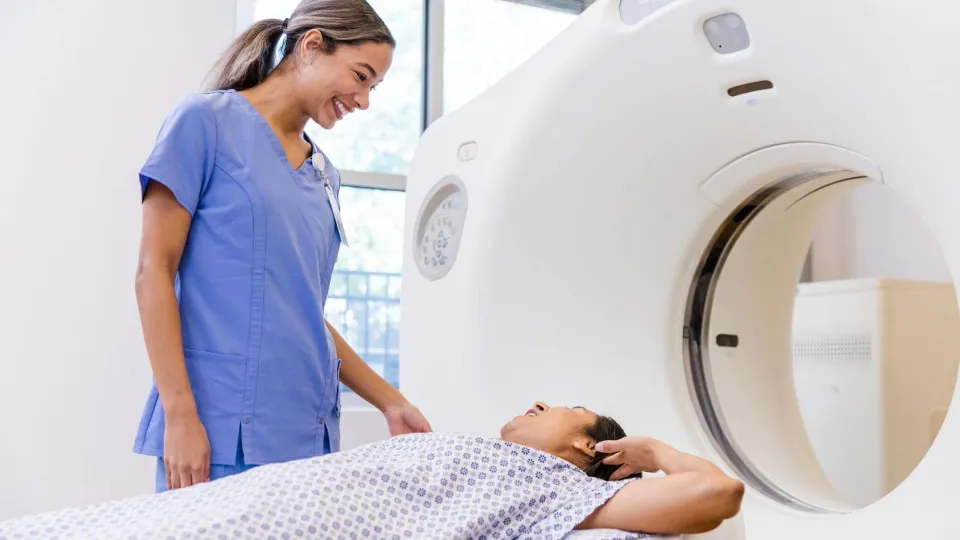
Radiology is a rewarding, yet sometimes misunderstood medical field. Although vaguely aware of the role radiologists and technologists play, many people fail to recognize just how quickly this field is growing. Concorde Career College's radiologic technology program offers much-needed clarity regarding the responsibilities given to radiologic technicians. Prior to entering this exciting program, several students arrive burdened with the following misguided notions.
Myth
Radiologic technologists spend all of their time alone.
Fact
Radiologic technologists regularly interact with patients and other medical professionals.
Radiologists and radiologic technologists are regarded by some as the anti-social introverts of the medical field. Although some radiologic technologists do prefer to keep to themselves, all have the opportunity to interact with others on a regular basis. The stereotype of the lonely radiologist or radiologic technologist sitting in a dark room is simply untrue. Radiologic technologists are given plenty of opportunities to interact directly with patients. They are responsible for positioning patients in a way that promotes accurate imaging. Many radiologic technologists specialize in oncology; these professionals may interact extensively with the same patients over a one to two-month period.
Myth
The job outlook for radiologic technologists looks grim.
Fact
Radiologic technology is a quickly-growing field.
Employment opportunities in radiologic technology are better than ever, with the Bureau of Labor Statistics projecting an impressive 21 percent change in employment between 2012 and 2022 for radiologic and MRI technologists. This is significantly faster than the average projected job growth in other fields. The rapid projected growth in radiologic technology correlates with an expected rise in osteoporosis-related fractures, as well as other conditions associated with an aging Baby Boomer population.
Myth
The radiation associated with radiologic technologist positions is dangerous.
Fact
The health risks associated with radiologic technology are minimal.
Many aspiring radiologic technologists worry that their field of choice may be dangerous, as it involves extensive work with diagnostic imaging equipment. Although those who worked in radiology prior to 1950 experienced a significantly increased risk of cancer, cardiovascular disease and other health problems, this is less of a problem for today's radiologists and radiologic technologists. Research from the National Cancer Institute's Division of Cancer Epidemiology and Genetics indicates that modern work in radiologic technology does not increase the risk of multiple myeloma, lymphoma, chronic lymphocytic leukemia, breast cancer or melanoma.
Radiologic technology is an exciting, albeit misunderstood profession. Concorde aspires to bust the many lingering myths surrounding radiologic technology and inspire a new generation of technologists to make a difference.
Join the growing population of radiologic technology students and get ready to launch a deeply rewarding career. Our career counselors can advise your today.
Interested In How To Become a Radiology Tech?
Click here to explore Radiology Tech Programs near you!
Take The Next Step Towards a Brighter Future
Interested in learning more about our Radiologic Technology program?
We have a Concorde representative ready to talk about what matters most to you. Get answers about start dates, curriculum, financial aid, scholarships and more!







